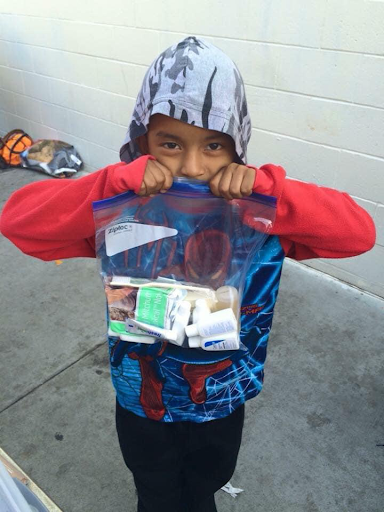Harvard-Westlake (HW) students Kaelyn Choi ’22 and Spectrum staffer Kate Hassett ’22 organized mental health-related activities for students at the middle school campus throughout May’s Mental Health Awareness Month with faculty support from English and Communications teacher Juliet Suess and Psychologist Kelly Decker.
Students played with puppies on the Commons May 23. Additionally, students partook in bracelet-making during activities period May 24 and participated in a combination “yoga/pilates/meditation class” during their free periods May 28. Dippin’ Dots were available for purchase during break, and students were permitted to draw with chalk on the pavement outside.
The activities were organized to decrease student stress, according to Hassett.
“What we’re trying to do now is do activities that relieve stress and anxiety out of kids,” Hassett said. “Doing creative things releases positive endorphins, which make you think better, and make you function better, too.”
In addition, Hassett and Choi spoke about their experiences with mental health and the importance of mental health awareness at the all-school assembly May 20.
“Throughout this year, I really went through a tough time with my self-identity or my mental health, so I wanted to be a voice for people who are going through similar things because the only people I had to talk to were adults,” Hassett said in an interview.
Mental Health Awareness Month has been observed in May since 1949 in the United States. Its purpose is to increase awareness, public understanding, and recognition of mental health, according to the University of Utah School of Medicine Department of Psychiatry.
According to the National Institute of Mental Health (NIMH), 18.9% of all U.S. adults had any mental illness (AMI). The NIMH defines AMI as a “mental, behavioral or emotional disorder” that varies in impairment. Furthermore, data obtained from National Comorbidity Survey Adolescent Supplement (NCS-A), a survey of 10,123 adolescents (individuals between the ages of 13 and 18) that took place between February 2001 and January 2004, shows that an estimated 49.5% of adolescents suffered from a mental health-related disorder.





